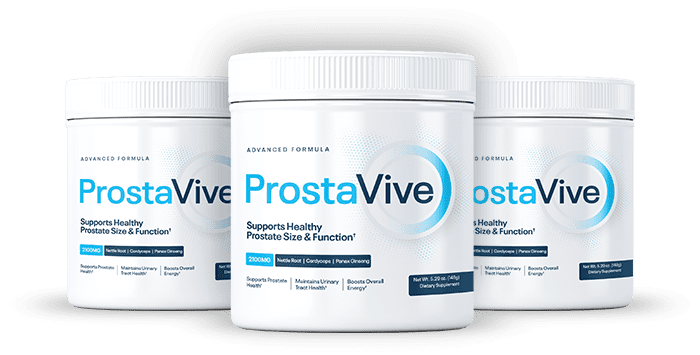Healthy Eating on a Budget: Tips and Tricks for Every Shopper

Healthy Eating on a Budget: Tips and Tricks for Every Shopper
Meal Planning: How to Save Money and Time
Meal planning is a great way to save both time and money when it comes to eating healthy on a budget. By taking the time to plan out your meals for the week, you can avoid the temptation of grabbing fast food or ordering takeout on a whim. Not only does meal planning help you stick to a budget, but it also ensures that you are making healthier choices by preparing your own meals at home.
One of the first steps in meal planning is to take inventory of what you already have in your pantry, fridge, and freezer. By using up ingredients that you already have on hand, you can save money on groceries and reduce food waste. Once you know what you have to work with, you can start planning out your meals for the week. Look for recipes that use similar ingredients to help cut down on costs and prevent food from going bad before you can use it.
When planning your meals, try to incorporate a variety of fruits, vegetables, whole grains, and lean proteins. These foods are not only nutritious but also budget-friendly. Look for sales and discounts on these items at your local grocery store or farmers market. Buying in-season produce can also help you save money while enjoying fresh and flavorful ingredients.
Another tip for saving money on groceries is to buy in bulk. Purchasing items like rice, beans, pasta, and nuts in bulk can help you save money in the long run. These pantry staples are versatile and can be used in a variety of dishes, making them a great investment for your meal planning efforts.
When shopping for groceries, it’s important to stick to your list and avoid impulse purchases. By planning out your meals ahead of time, you can create a shopping list that includes only the items you need for the week. This can help you avoid overspending and prevent food waste by only buying what you will actually use.
Consider shopping at discount stores or using coupons to save even more money on groceries. Many stores offer loyalty programs or discounts for buying in bulk, so be sure to take advantage of these savings opportunities. You can also look for generic or store-brand items, which are often cheaper than name-brand products but still offer the same quality.
Meal planning doesn’t have to be complicated or time-consuming. By taking the time to plan out your meals for the week, you can save money, eat healthier, and reduce food waste. With a little bit of effort and creativity, you can enjoy delicious and nutritious meals without breaking the bank. So next time you’re at the grocery store, remember these tips and tricks for healthy eating on a budget. Your wallet and your waistline will thank you.
Affordable Superfoods to Add to Your Diet
Eating healthy doesn’t have to break the bank. In fact, there are plenty of affordable superfoods that you can add to your diet without spending a fortune. These nutrient-packed foods are not only good for your health but also easy on your wallet. So, if you’re looking to eat healthier without blowing your budget, here are some tips and tricks for incorporating affordable superfoods into your diet.
One of the most budget-friendly superfoods is beans. Beans are a great source of protein, fiber, and essential nutrients like iron and potassium. They are also incredibly versatile and can be used in a variety of dishes, from soups and stews to salads and dips. Plus, beans are shelf-stable, meaning you can buy them in bulk and store them for a long time without worrying about them going bad.
Another affordable superfood to add to your diet is oats. Oats are a great source of fiber, which can help keep you feeling full and satisfied throughout the day. They are also rich in antioxidants and can help lower cholesterol levels. Oats are incredibly versatile and can be used in a variety of dishes, from breakfast porridge to homemade granola bars. Plus, oats are one of the cheapest whole grains you can buy, making them a budget-friendly option for anyone looking to eat healthier.
Leafy greens are another affordable superfood that you can add to your diet. Greens like spinach, kale, and collard greens are packed with vitamins, minerals, and antioxidants that can help boost your immune system and improve your overall health. Plus, leafy greens are incredibly versatile and can be used in a variety of dishes, from salads and smoothies to soups and stir-fries. Buying leafy greens in bulk or opting for frozen options can help you save money while still reaping the health benefits of these nutrient-packed foods.
Berries are another affordable superfood that you can add to your diet. Berries like strawberries, blueberries, and raspberries are packed with antioxidants, vitamins, and minerals that can help improve your overall health. Plus, berries are incredibly versatile and can be used in a variety of dishes, from smoothies and yogurt bowls to salads and desserts. Buying frozen berries can help you save money while still enjoying the health benefits of these delicious fruits.
Nuts and seeds are also affordable superfoods that you can add to your diet. Nuts like almonds, walnuts, and cashews are packed with healthy fats, protein, and essential nutrients that can help keep you feeling full and satisfied throughout the day. Seeds like chia seeds, flaxseeds, and pumpkin seeds are also rich in nutrients and can help improve your overall health. Nuts and seeds are incredibly versatile and can be used in a variety of dishes, from salads and oatmeal to homemade energy bars and trail mix. Buying nuts and seeds in bulk can help you save money while still enjoying the health benefits of these nutrient-packed foods.
Incorporating affordable superfoods into your diet doesn’t have to be expensive. By opting for budget-friendly options like beans, oats, leafy greens, berries, nuts, and seeds, you can eat healthier without breaking the bank. So, next time you’re at the grocery store, be sure to stock up on these nutrient-packed foods and enjoy the health benefits they have to offer.
Eating Healthy on a Budget: Smart Shopping Strategies
Eating healthy doesn’t have to break the bank. With a little planning and some smart shopping strategies, you can enjoy nutritious meals without spending a fortune. Here are some tips and tricks for every shopper looking to eat healthy on a budget.
One of the best ways to save money on groceries is to plan your meals ahead of time. Before heading to the store, take some time to create a meal plan for the week. This will help you avoid impulse buys and ensure that you only purchase the items you need. Plus, planning your meals in advance can help you make healthier choices and avoid the temptation of fast food or takeout.
When creating your meal plan, try to incorporate ingredients that are on sale or in season. Seasonal produce is often more affordable and fresher than out-of-season options. Look for sales and discounts on lean proteins like chicken, turkey, and fish, as well as whole grains like brown rice and quinoa. By taking advantage of these deals, you can save money while still enjoying a variety of nutritious foods.
Another way to eat healthy on a budget is to buy in bulk. Many grocery stores offer discounts on items when purchased in larger quantities. Consider buying staples like beans, rice, and oats in bulk to save money in the long run. You can also freeze items like meat, bread, and produce to prevent them from spoiling and make them last longer. By buying in bulk and freezing items, you can reduce waste and save money on your grocery bill.
When shopping for groceries, be sure to compare prices and look for the best deals. Consider shopping at discount stores or buying generic brands to save money on your purchases. You can also use coupons and loyalty programs to get discounts on your favorite products. By being a savvy shopper and taking advantage of sales and discounts, you can stretch your grocery budget and still eat healthy.
One of the most important things to remember when shopping on a budget is to avoid impulse buys. Stick to your shopping list and avoid purchasing items that are not essential to your meal plan. By staying focused and disciplined while shopping, you can avoid overspending and ensure that you are only buying what you need.
Finally, consider growing your own fruits and vegetables to save money on groceries. Even if you don’t have a green thumb, you can start small with herbs or easy-to-grow vegetables like tomatoes or peppers. Not only will growing your own produce save you money, but it can also be a fun and rewarding hobby.
In conclusion, eating healthy on a budget is possible with some smart shopping strategies. By planning your meals ahead of time, buying in bulk, comparing prices, and avoiding impulse buys, you can save money while still enjoying nutritious foods. With a little creativity and resourcefulness, you can eat healthy without breaking the bank. So next time you head to the grocery store, keep these tips in mind and watch your wallet and your waistline thank you.




